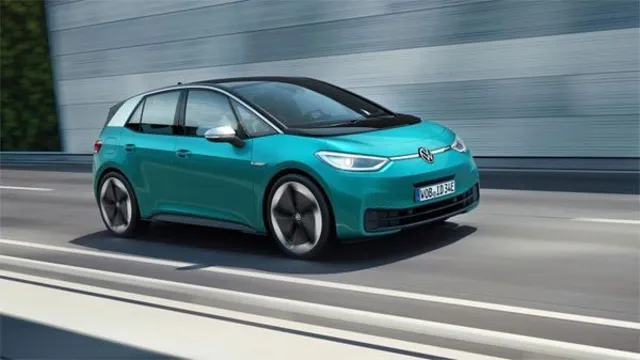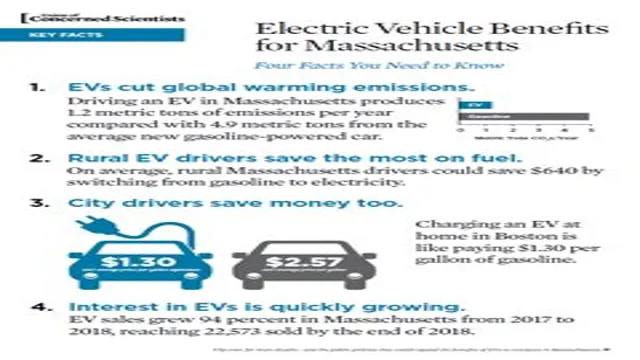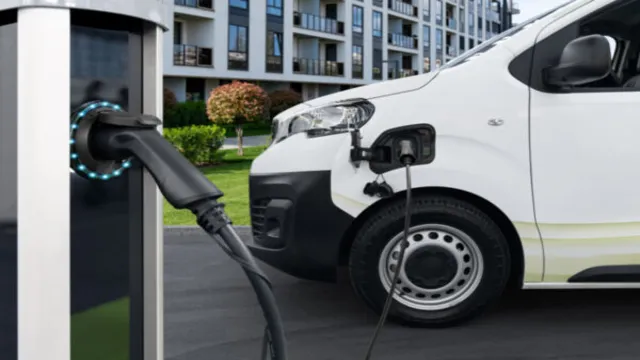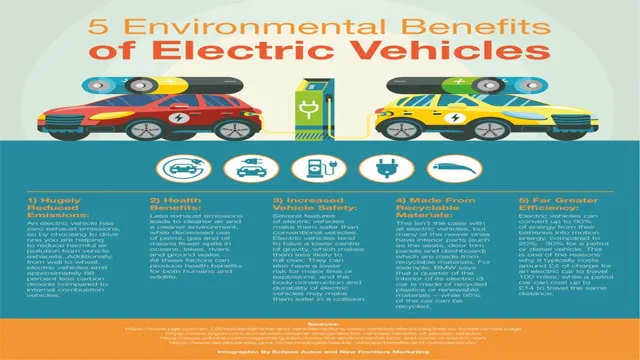Unleashing the Financial Gains: How Electric Cars Can Save You Money
If you’re considering buying a new car, one thing you shouldn’t overlook is the financial benefits of electric cars. As we continue to move towards a more sustainable future, electric cars are quickly gaining popularity. While the initial cost may be higher than gas-powered cars, the savings you can reap in the long run are significant.
Not only are electric cars cheaper to maintain and repair, but they are also much cheaper to run than gas-powered cars. In this blog post, we’ll explore the various financial benefits of owning an electric car.
Lower Fuel Costs
When it comes to owning an electric car, one of the most significant financial benefits is lower fuel costs. Since electric vehicles (EVs) are powered by electricity, they don’t require gasoline or diesel fuel, which means drivers can save a considerable amount of money on fuel expenses. Moreover, the cost of charging an EV at home is much cheaper than filling up a gas tank at the pump.
Plus, many public charging stations offer free charging, which can add up to even more savings over time. Not to mention, EVs are also more efficient, which means they require less maintenance and repair costs compared to traditional combustion engine vehicles. With these financial advantages, owning an electric car is an investment that can pay off in the long run.
Electricity vs Gasoline Costs
When it comes to choosing between gasoline and electricity as a fuel source, many people are concerned with the cost difference between the two options. Luckily, electric vehicles tend to have lower fuel costs in the long run compared to traditional gasoline-powered vehicles. While the initial cost of purchasing an electric vehicle may be higher, the savings in fuel costs can more than make up for it over time.
In fact, electric vehicles can save owners up to $1,000 per year on fuel costs alone. Not only is this better for the wallet, but it’s also better for the environment as electric vehicles emit fewer greenhouse gases. It’s important to note that the exact cost savings will vary depending on the specific vehicle and the cost of electricity in your area.
However, in general, electric vehicles offer a more cost-effective and eco-friendly alternative to traditional gasoline-powered vehicles.

Tax Credits & Incentives
If you want to enjoy lower fuel costs, then you may want to consider taking advantage of tax credits and incentives. These are government-sponsored programs that offer tax breaks to individuals or businesses that purchase fuel-efficient vehicles or use alternative energy sources for their transportation needs. For example, if you buy an electric vehicle, you may be eligible for a tax credit that can reduce your tax bill by a few thousand dollars.
Alternatively, if you use biodiesel or propane to power your vehicle, you may qualify for a tax exemption or a tax credit. These incentives can help you save hundreds or even thousands of dollars on fuel costs every year, while also reducing your carbon footprint and contributing to a cleaner environment. So, why not explore your options and see how you can benefit from these tax credits and incentives?
Reduced Maintenance Costs
Electric cars are not only great for the environment but they can also save you a ton of money in reduced maintenance costs. This is because electric cars don’t have the same complex engine systems that traditional gasoline-powered cars do. There are no spark plugs, oil changes, or timing belts to worry about.
Instead, electric cars have a much simpler motor and battery system that requires less maintenance overall. Additionally, electric cars have regenerative braking systems that can extend the life of brake pads and rotors, further reducing maintenance costs. The financial benefits of electric cars are becoming increasingly attractive as more and more people look for ways to reduce their carbon footprint while also saving money.
It’s a win-win situation!
Fewer Moving Parts, Less Wear and Tear
One of the fantastic advantages of having robotic technology is the reduced maintenance cost. This is possible because robots have fewer moving parts, which means less wear and tear on the equipment and fewer repairs are required. Unlike human-operated machines, robots have limited mobility, which means they do not need to move around as much as humans do, resulting in fewer parts needing to be replaced regularly.
This reduced maintenance cost is highly beneficial for businesses because it means less downtime and more efficiency in the long run. Investing in robotic technology can be considered a cost-effective strategy because it is a one-time investment, and you don’t have to worry about frequent repairs and maintenance costs in the future. Therefore, robotic technology is an excellent investment option that can save you from a lot of trouble and expenses.
Lower Cost of Repairs and Servicing
When making a big purchase like a car, it’s important to consider not just the upfront cost but also the expenses that come with owning it. One of these expenses is maintenance and repairs, which can add up over time. Fortunately, electric vehicles (EVs) have lower maintenance costs compared to traditional gas-powered cars.
This is largely due to the fact that EVs have fewer moving parts, meaning there is less wear and tear on the vehicle. Additionally, frequent oil changes and other fluid replacements are not necessary for electric cars. While there may be some unique servicing and repair needs for EVs, such as battery replacements, overall the cost of maintenance is significantly lower.
This translates into savings for the driver, both in terms of time and money. So, if you’re looking for a car that won’t break the bank when it comes to upkeep, an electric vehicle may be worth considering.
Potential Resale Value
Electric cars are becoming increasingly popular due to the many financial benefits they provide. One of these benefits is the potential resale value of an electric car. Unlike traditional gasoline cars, which continually depreciate in value, electric cars retain their value much better.
This is because electric cars have a longer lifespan, lower maintenance costs, and are more energy-efficient. Additionally, many governments offer tax incentives and rebates for purchasing electric cars, which can increase their resale value. Furthermore, the demand for electric cars is growing, so they are expected to hold their value even better in the future.
So, not only do electric cars save money on fuel and maintenance costs, but they can also be a great investment in the long run thanks to their high resale value.
Electric Cars Retain Good Value
Electric cars have seen a significant increase in demand over the last few years, and one of the many advantages of owning an electric vehicle is their potential resale value. The resale value of electric cars is particularly impressive due to the technology used to power them, which is constantly being improved and updated. As a result, an electric car purchased today is likely to retain its value much better than a traditional gasoline-powered vehicle.
Additionally, these vehicles tend to cost less to maintain over time, further increasing their overall value. So, whether you’re planning to upgrade to a newer model or sell your electric car outright, you can rest assured that you’ll get a good return on your investment.
Appealing to Eco-Conscious Buyers
As more and more people become environmentally conscious, the demand for eco-friendly homes is increasing. For homeowners who are looking to sell their homes, appealing to eco-conscious buyers can potentially increase resale value. Energy-efficient appliances, sustainable building materials, and solar panels are just a few examples of eco-friendly features that can make a home more appealing to buyers.
These features not only benefit the environment but also can save homeowners money in the long run. When looking to sell a home, it’s important to consider the potential resale value and appeal to the growing market for eco-friendly homes. By incorporating green features into a home, owners can increase its value and attract buyers who value sustainable living.
Total Cost of Ownership Comparison
Electric cars are becoming increasingly popular due to their financial benefits. The total cost of ownership for an electric car is significantly lower than that of a traditional gas-powered vehicle. Electric cars have fewer moving parts, meaning less maintenance is required, and the cost of fuel is much cheaper.
Additionally, electric cars are eligible for tax credits and rebates, further reducing the overall cost. Not only are they more cost-effective, but electric cars also have a lower impact on the environment. By choosing an electric car, you are not only saving money but also making a positive impact on the planet.
So, why not make the switch to an electric car and enjoy the financial benefits while also contributing to a cleaner future?
Electric Cars Can Be Cheaper in the Long Run
When it comes to choosing between a gas-powered car and an electric car, it’s easy to assume that electric cars are more expensive. However, when you take into account the total cost of ownership, electric cars can actually be cheaper in the long run. While electric cars may have a higher upfront cost, they require less maintenance, and the cost of fuel is significantly lower.
In fact, over the course of 10 years, the total cost of ownership for an electric car can be up to $13,000 cheaper than a gas-powered car. This is because electric cars have fewer moving parts and therefore require less upkeep. Additionally, the cost of electricity to charge an electric car is significantly lower than the cost of gasoline, especially as gas prices continue to rise.
So while an electric car may seem like a big investment, in the long run, it can save you a lot of money. So the next time you’re in the market for a new car, consider taking a closer look at electric options to see if it makes financial sense for you.
Conclusion
In conclusion, the financial benefits of electric cars are more than just simple savings on gas money. With lower maintenance costs, government incentives, and potential resale value, buying an electric car can actually lead to a significant return on investment in the long run. Plus, you get the added bonus of knowing you’re doing your part for the environment.
It’s no wonder why more and more people are choosing to make the switch to electric. So don’t be shocked if your bank account starts thanking you for going electric – it’s a truly electrifying decision!”
FAQs
What are the financial advantages of owning an electric car?
Electric cars save money on fuel costs, require less maintenance, and are often eligible for tax incentives or rebates.
How much money can you save with an electric car compared to a gas-powered car?
The exact amount varies depending on factors such as the price of gas and electricity in your area, but on average, electric car owners can save thousands of dollars per year in fuel and maintenance expenses.
Do electric cars cost more upfront than gas-powered cars?
Yes, electric cars often have a higher sticker price than traditional gas-powered vehicles. However, the total cost of ownership over the lifetime of the car is usually less due to the lower operating costs.
What are the long-term financial benefits of transitioning to electric cars?
In addition to cost savings on fuel and maintenance, electric cars can help reduce air pollution and greenhouse gas emissions, potentially saving society billions of dollars in health and environmental costs in the long run.



